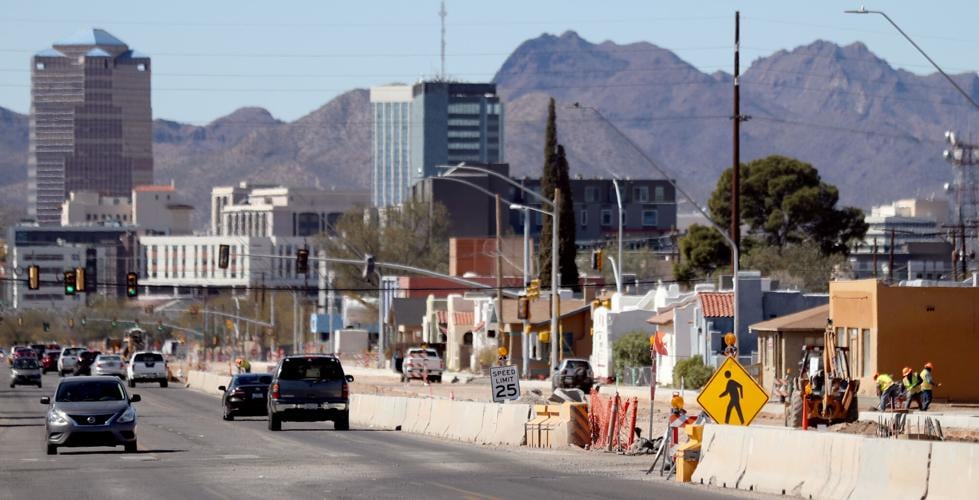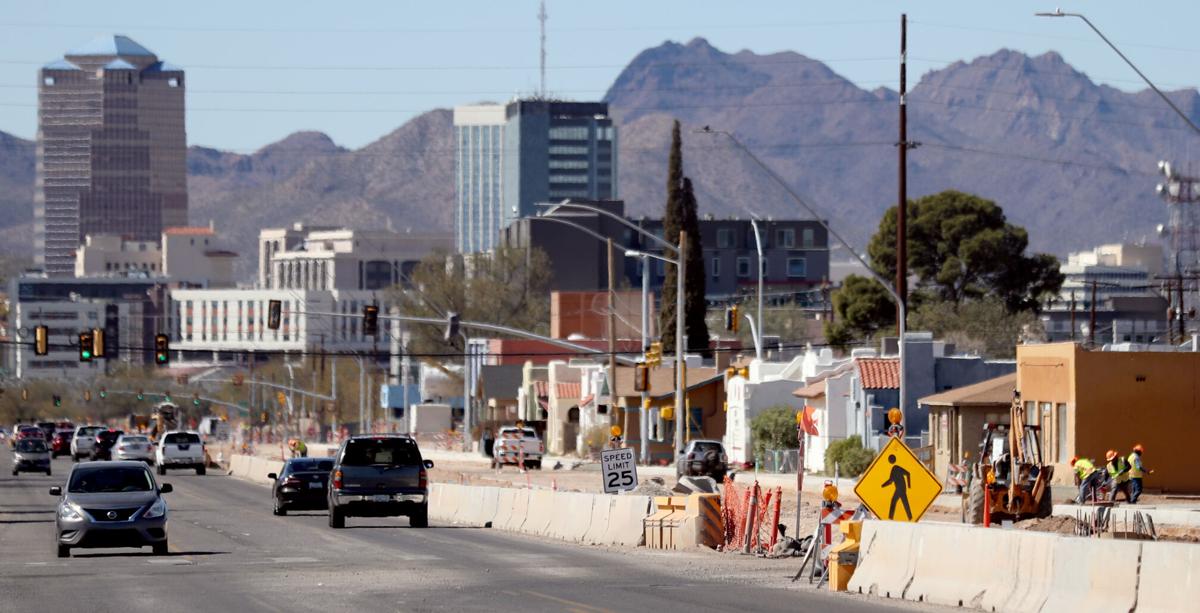The figure sounded like an argument for the status quo.
It wasn’t.
A policy analyst for the Pima Association of Governments, David Zynda, pointed out during a presentation Thursday that 99% of its board’s decisions made over the last 10 years were unanimous. And 95% of the decisions made by the same group of people, sitting as the Regional Transportation Authority board, were unanimous.
The implication: There is no need for the city of Tucson, which has been campaigning to have greater voting power, to get more power, since the votes are unanimous anyway.
But the argument works the opposite way even better. And if the RTA’s board wants to have a chance at extending the half-cent sales tax for transportation for another 20 years, they have to start grasping these details and making some compromises.
If 95% of the RTA board’s decisions are unanimous, then there is little harm in giving the city of Tucson greater power on the board, right? It satisfies the city’s demand for more proportional representation while sustaining a regional approach that everyone seems to agree is preferable.
It is time to get down to negotiating, and seeing these potential areas of confluence, if the so-called RTA Next is to become a reality.
The issue of proportional representation has been simmering all year, since Tucson Mayor Regina Romero sent a letter in February demanding changes if the city is to get behind the plan to extend the Regional Transportation Authority and its half-cent sales tax.
But despite letters sent, complaints and responses made, nothing happened. Farhad Moghimi, the executive director of the Pima Association of Governments, and the board majority had no incentive to change.
The status quo has benefited them, because the small suburban jurisdictions like Marana and Sahuarita got equal representation to the city of Tucson, which has more than half the area’s population.
Specifically, Tucson has about 55% of the population and 11% of the voting power.
So, on Sept. 14, the Tucson City Council threw down an ultimatum. It said, essentially, give us proportional voting and veto power or we are abandoning RTA Next and will do our own thing.
In the case of Tucson, this is probably not an idle threat. City voters have repeatedly approved sales-tax increases and bond issues to pay for roads, emergency services and other needs.
If the city wants to abandon the county-wide half-cent sales tax and seek its own municipal sales tax to pay for transportation projects, it probably can. The city’s Move Tucson transportation plan is well underway.
On the other hand, it’s not totally clear that the outlying jurisdictions will have as clear a path forward. Marana may be the best positioned. As Mayor Ed Honea noted, it has a big retail sector and previously had its own half-cent sales tax, which it rescinded after the Regional Transportation Authority and its tax were approved in 2006.
“Marana may be the wealthiest town in Pima County,” Honea said at Thursday’s meeting. “We can function without RTA. We don’t want to function without RTA.”
But not all the other members‚ the Pasqua Yaqui and Tohono O’odham tribes, South Tucson, Sahuarita — are so well-positioned.
Another possibility is that the other members of the RTA could take a transportation plan to the county’s voters with Tucson excluded from the proceeds if it passes. But the chance that such a plan would pass, when city voters represent the majority of county voters, is so slim it’s not worth considering.
So why won’t the RTA board get down to brass tacks and negotiate something?
Well, there is one potentially big roadblock. Apparently it is written into the state law that establishes the Regional Transportation Authority that each member gets one vote.
As Pima County Supervisor Rex Scott, the supervisors’ representative on the board, said, they should avoid going back to the Legislature at all costs.
“I don’t want the Legislature to be able to re-open the RTA,” Scott told me Tuesday. “I don’t want to involve the Legislature at all because their attitude toward Tucson and Pima County has historically been negative.”
True. As Honea put it to me Tuesday, “The Legislature is Republican, and I am Republican, and the city isn’t going to get the Legislature to change it.”
But there may be some wiggle room in the statute. A University of Arizona professor of urban planning, Arlie Adkins, made a presentation to the board Thursday and noted the statute’s language: “Each member of the board of directors is vested with one vote each when determining transportation policy as the Regional Transportation Authority.”
Perhaps there is room within the existing law for the board to simply add members for the more populous jurisdictions.
Supervisor Matt Heinz proposed to the board that Tucson be given three votes, Pima County two votes, and the rest of the members one vote each. On a 12-member board, with seven members other than Tucson and the county, that would prevent Pima County and Tucson from ganging up on the smaller jurisdictions, because they still wouldn’t have a majority put together.
It’s unclear if Heinz’s idea would work legally or be acceptable to the parties, but it is the kind of thing that the RTA board ought to be considering.
Tucson could give on its demand for “veto power” but receive greater influence on the board.
Everybody agrees that it is better to work together as a region on transportation issues. They should use the city’s ultimatum exactly as it’s meant — as an incentive to get the compromise done.
After all, the vast majority of the votes are likely to be unanimous anyway.







